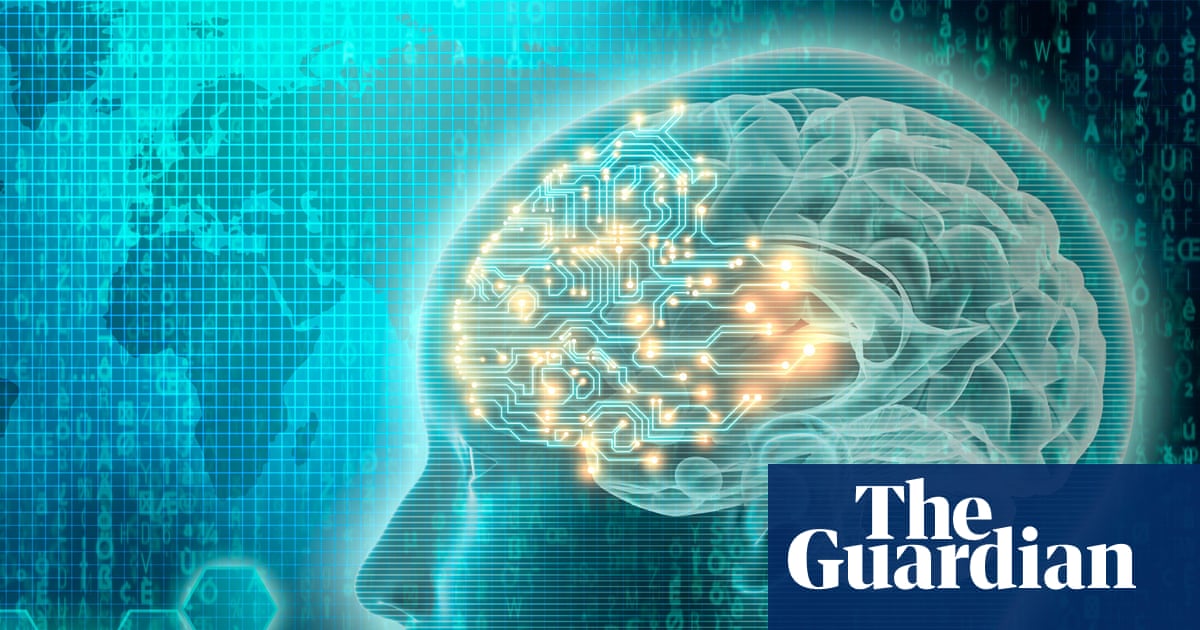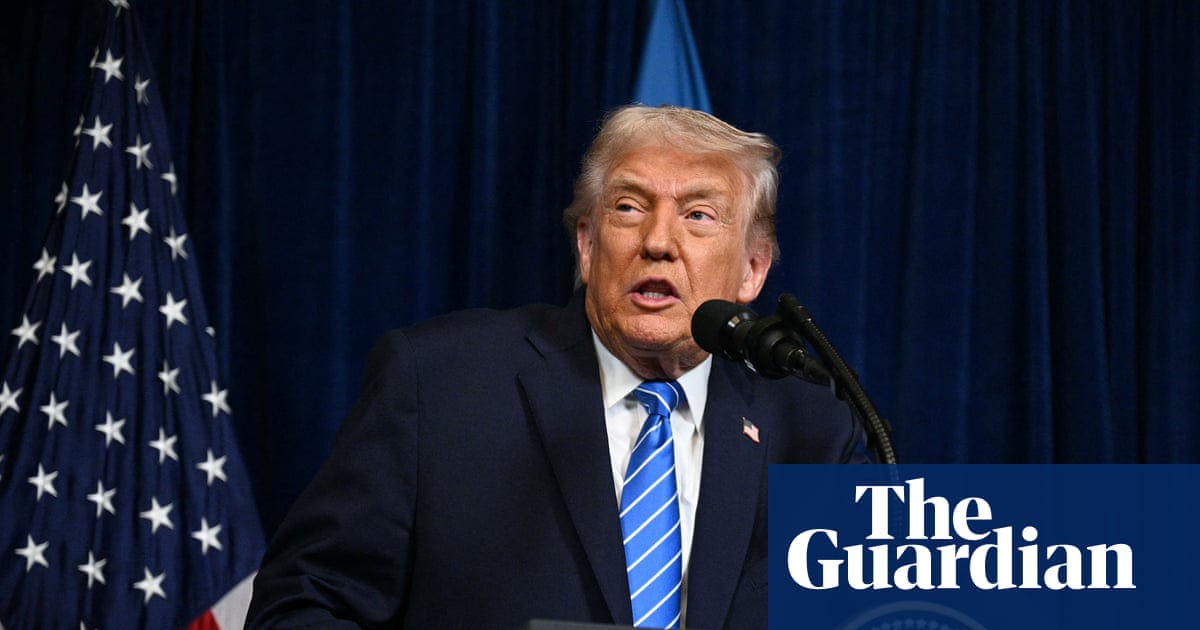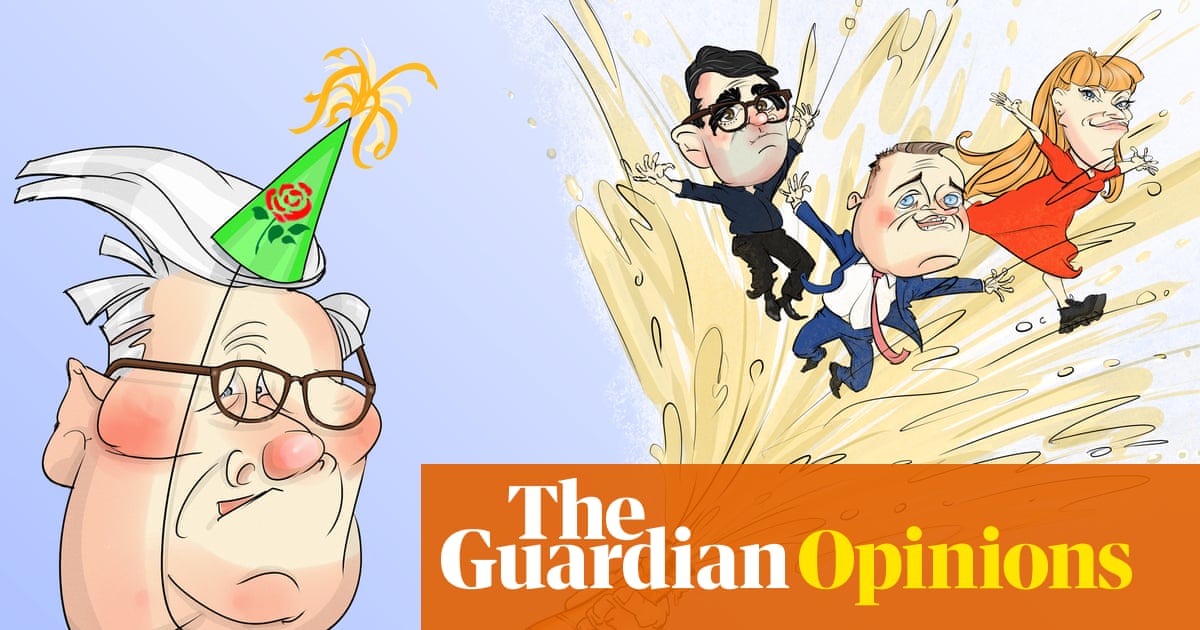The eminent British historian Sir Richard Evans produced three expert witness reports for the libel trial involving the Holocaust denier David Irving, studied for a doctorate under the supervision of Theodore Zeldin, succeeded David Cannadine as Regius professor of history at Cambridge (a post endowed by Henry VIII) and supervised theses on Bismarck’s social policy.
That was some of what you could learn from Grokipedia, the AI-powered encyclopedia launched last week by the world’s richest person, Elon Musk. The problem was, as Prof Evans discovered when he logged on to check his own entry, all these facts were false.
It was part of a choppy start for humanity’s latest attempt to corral the sum of human knowledge or, as Musk put it, create a compendium of “the truth, the whole truth and nothing but the truth” – all revealed through the magic of his Grok artificial intelligence model.
When the multibillionaire switched on Grokipedia on Tuesday, he said it was “better than Wikipedia”, or “Wokepedia” as his supporters call it, reflecting a view that the dominant online encyclopedia often reflects leftwing talking points. One post on X caught the triumphant mood among Musk’s fans: “Elon just killed Wikipedia. Good riddance.”
But users found Grokipedia lifted large chunks from the website it intended to usurp, contained numerous factual errors and seemed to promote Musk’s favoured rightwing talking points. In between posts on X promoting his creation, Musk this week declared “civil war in Britain is inevitable”, called for the English “to ally with the hard men” such as the far-right agitator Tommy Robinson, and said only the far-right AfD party could “save Germany”.
Musk was so enamoured of his AI-encyclopedia he said he planned to one day etch the “comprehensive collection of all knowledge” into a stable oxide and “place copies … in orbit, the moon and Mars to preserve it for the future”.
Evans, however, was discovering that Musk’s use of AI to weigh and check facts was suffering a more earth-bound problem. “Chatroom contributions are given equal status with serious academic work,” Evans, an expert on the Third Reich, told the Guardian, after being invited to test out Grokipedia. “AI just hoovers up everything.”
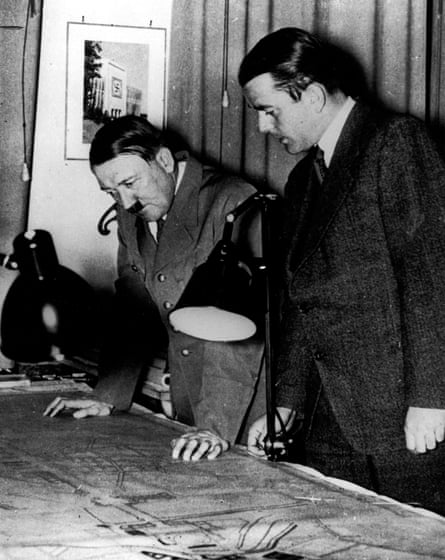
He noted its entry for Albert Speer, Hitler’s architect and wartime munitions minister, repeated lies and distortions spread by Speer even though they had been corrected in a 2017 award-winning biography. The site’s entry on the Marxist historian Eric Hobsbawm, whose biography Evans wrote, claimed wrongly he experienced German hyperinflation in 1923, that he was an officer in the Royal Corps of Signals and didn’t mention that he had been married twice, Evans said.
The problem, said David Larsson Heidenblad, the deputy director of the Lund Centre for the History of Knowledge in Sweden, was a clash of knowledge cultures.
“We live in a moment where there is a growing belief that algorithmic aggregation is more trustworthy than human-to-human insight,” Heidenblad said. “The Silicon Valley mindset is very different from the traditional scholarly approach. Its knowledge culture is very iterative where making mistakes is a feature, not a bug. By contrast, the academic world is about building trust over time and scholarship over long periods during which the illusion that you know everything cracks. Those are real knowledge processes.”
Grokipedia’s arrival continues a centuries-old encyclopedia tradition from the 15th-century Chinese Yongle scrolls to the Encyclopédie, an engine for spreading controversial enlightenment views in 18th-century France. These were followed by the anglophone-centric Encyclopedia Britannica and, since 2001, the crowd-sourced Wikipedia. But Grokipedia is the first to be largely created by AI and this week a question swirled: who controls the truth when AIs, steered by powerful individuals, are holding the pen?
“If it’s Musk doing it then I am afraid of political manipulation,” said the cultural historian Peter Burke, emeritus professor at Emmanuel College, Cambridge, who in 2000 wrote A Social History of Knowledge since the time of Johannes Gutenberg’s 15th-century printing press.
“I am sure some of it will be overt to some readers, but the problem may be that other readers may miss it,” Burke said. The anonymity of many encyclopedia entries often gave them “an air of authority it shouldn’t have”, he added.
Andrew Dudfield, the head of AI at Full Fact, a UK-based factchecking organisation, said: “We really have to consider whether an AI-generated encyclopedia – a facsimile of reality, run through a filter – is a better proposition than any of the previous things that we have. It doesn’t display the same transparency but it is asking for the same trust. It is not clear how far the human hand is involved, how far it is AI=generated and what content the AI was trained on. It is hard to place trust in something when you can’t see how those choices are made.”
after newsletter promotion
Musk had been encouraged to launch Grokipedia by, among others, Donald Trump’s tech adviser, David Sacks, who complained Wikipedia was “hopelessly biased” and maintained by “an army of leftwing activists”.
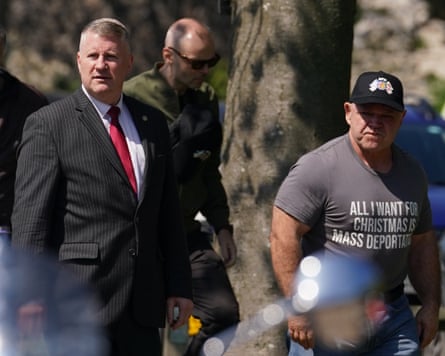
Until as recently as 2021, Musk has supported Wikipedia, tweeting on its 20th birthday: “So glad you exist.” But by October 2023 his antipathy towards the platform led him to offer £1bn “if they change their name to Dickipedia”.
Yet many of the 885,279 articles available on Grokipedia in its first week were lifted almost word for word from Wikipedia, including its entries on the PlayStation 5, the Ford Focus and Led Zeppelin. Others, however, differed significantly:
-
Grokipedia’s entry on the Russian invasion of Ukraine cited the Kremlin as a prominent source and quoted the official Russian terminology about “denazifying” Ukraine, protecting ethnic Russians and neutralising threats to Russian security. By contrast, Wikipedia said Putin espoused imperialist views and “baselessly claimed that the Ukrainian government were neo-Nazis”.
-
Grokipedia called the far-right organisation Britain First a “patriotic political party”, which pleased its leader, Paul Golding, who in 2018 was jailed for anti-Muslim hate crimes. Wikipedia, on the other hand, called it “neo-fascist” and a “hate group”.
-
Grokipedia called the 6 January 2021 turmoil at the US Capitol in Washington DC a “riot”, not an attempted coup, and said there were “empirical underpinnings” to the idea that a deliberate demographic erasure of white people in western nations is being orchestrated through mass immigration. This is a notion that critics consider to be a conspiracy theory.
-
Grokipedia said Donald Trump’s conviction for falsifying business records in the Stormy Daniels hush-money case was handed down “after a trial in a heavily Democratic jurisdiction”, and there was no mention of his conflicts of interest – for example receiving a jet from Qatar or the Trump family cryptocurrency businesses.

Wikipedia responded coolly to the launch of Grokipedia, saying it was still trying to understand how Grokipedia worked.
“Unlike newer projects, Wikipedia’s strengths are clear,” a spokesperson for the Wikimedia Foundation said. “It has transparent policies, rigorous volunteer oversight, and a strong culture of continuous improvement. Wikipedia is an encyclopedia, written to inform billions of readers without promoting a particular point of view.”
xAI did not respond to requests for comment.

 1 month ago
45
1 month ago
45










